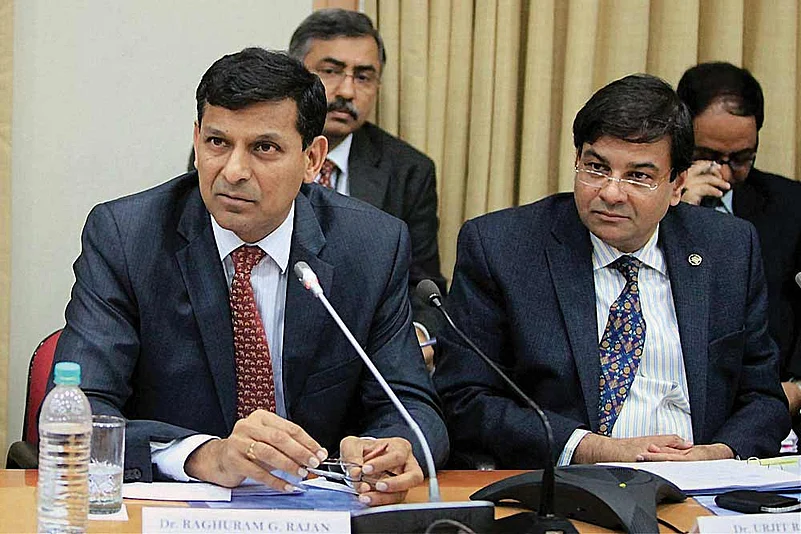Core Concerns
- Both the RBI and government will have to give up some powers to make inflation-targeting work
- The RBI wants a Monetary Policy Committee with one equal vote for the governor
- The MPC to meet once every two months, publish twice a year, and account for failures
- Changes to the MPC unlikely without government concurrence
- The 4 per cent target is to be achieved over two years, subject to conditions
***
It’s raining stars in the banking firmament. After RBI governor Raghuram Rajan, it’s the turn of deputy governor of the central bank, Dr Urjit Patel. The 50-year-old economist—trained at Yale and Oxford—shot into the limelight after a panel he chaired recently said the bank’s priority must be to control inflation. So far, the bank has interpreted its mandate under the RBI Act, 1935, as including economic growth, stability and inflation—all on par. The panel’s other recommendation, that the RBI governor will have one vote among equals on a new monetary policy committee (MPC), has stirred fears of a technocratic takeover of the central bank. RBI governors are appointed by the PM, and so represent Parliament at the bank. The status gives the governor tremendous power. Just last month, Rajan vetoed the MPC to enforce a rate cut.
Ajay Chhibber, who heads India’s Independent Evaluation Office, says elected representatives must have a significant role at the RBI. “Committee members should not be government officials but should be selected by some form of parliamentary approval,” he says. Last week, finance minister P. Chidambaram emphasised RBI’s mandate according to the government: “The RBI must strike a balance between price stability and growth while formulating monetary policy.”
That said, policymakers have tried for six years to control inflation. The rash of optimistic forecasts achieved little. Contradictory statements pronouncing high inflation as inevitable compounded the chaos. The notion that inflation will spiral was embedded—and it came true. India had the highest inflation among developing countries between 2006-12, the global financial meltdown never fully explaining the trend. “Nor is today’s inflation explained by rising food or fuel prices,” says Manipal University’s T.V. Mohandas Pai. Pai supports inflation targeting and RBI accountability: “Appearing more often before parliamentary committees, offering detailed accounts of why decisions are taken,” he says, ensures the RBI isn’t considered arbitrary.
“The report gives top priority to inflation. The other two objectives, growth and stability, remain,” explains Chetan Ghate, associate professor, Indian Statistical Institute, who was also on the Urjit panel. He says fears that inflation will spill into “core” sectors is real. The RBI must focus attention on the problem.
This understanding rebuts the official version that inflation is limited to some sectors, primarily food and fuel. Over the last two months, vegetable price inflation declined from 11.2 per cent to 8.8 per cent but inflation in housing, clothing and other services is stuck near 8 per cent. Economists see this as tough-to-dislodge “core” inflation taking root and spreading to health, education and other services, making everyday life tough.
The Urjit report slots the comfort zone for inflation at 4 per cent, give or take 2 per cent—much lower than the 10 per cent consumer prices now hover at. It’s a tantalising prospect, despite caveats, including a two-year time-frame. “The whole idea behind inflation targeting is to move toward a more rule-based approach in monetary policy,” says Ghate. Indeed, tackling growth, inflation and stability simultaneously is virtually impossible. As the government itself argues, inflation is often a byproduct of growth.
How far the deputy governor’s skills will take this debate is anybody’s guess. Former associates speak highly of him as an economist as also his ability to tackle Indian officialdom. In the early 2000s, Urjit helped set up the Competition Commission as India’s youngest regulator. Today, he’s the oldest. He’s worked at Boston Consulting on tax and electricity reform and in India with Reliance Industries. Sources say he was picked for a former RBI stint solely on merit (he never lobbied). In this round, he’ll have to.


























